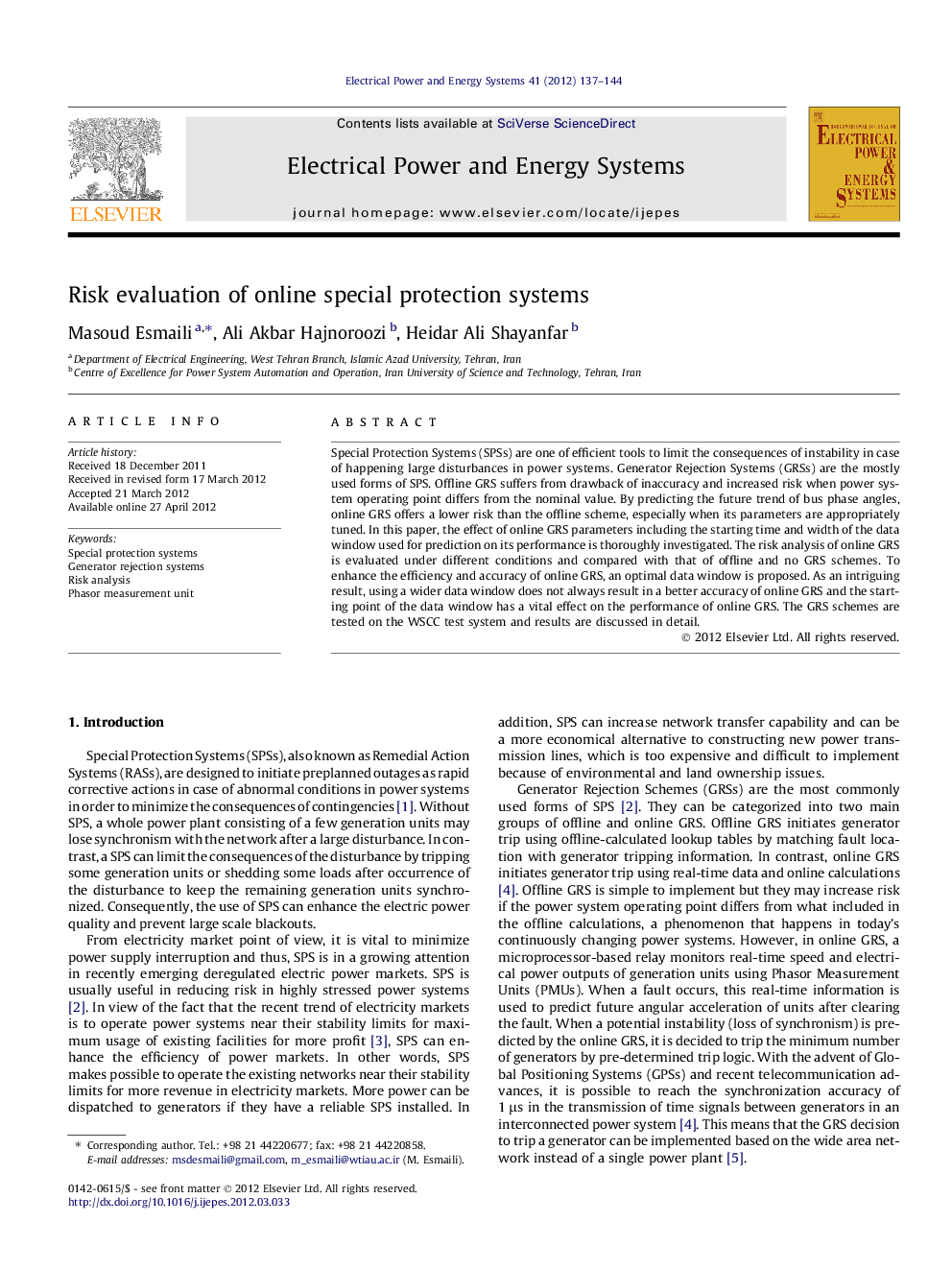| Article ID | Journal | Published Year | Pages | File Type |
|---|---|---|---|---|
| 399887 | International Journal of Electrical Power & Energy Systems | 2012 | 8 Pages |
Special Protection Systems (SPSs) are one of efficient tools to limit the consequences of instability in case of happening large disturbances in power systems. Generator Rejection Systems (GRSs) are the mostly used forms of SPS. Offline GRS suffers from drawback of inaccuracy and increased risk when power system operating point differs from the nominal value. By predicting the future trend of bus phase angles, online GRS offers a lower risk than the offline scheme, especially when its parameters are appropriately tuned. In this paper, the effect of online GRS parameters including the starting time and width of the data window used for prediction on its performance is thoroughly investigated. The risk analysis of online GRS is evaluated under different conditions and compared with that of offline and no GRS schemes. To enhance the efficiency and accuracy of online GRS, an optimal data window is proposed. As an intriguing result, using a wider data window does not always result in a better accuracy of online GRS and the starting point of the data window has a vital effect on the performance of online GRS. The GRS schemes are tested on the WSCC test system and results are discussed in detail.
► Accuracy of online GRS depends on the data window used to predict future angles. ► A wider data window does not always result in a better accuracy of online GRS. ► Starting point of data window has a critical effect on the accuracy of online GRS.
